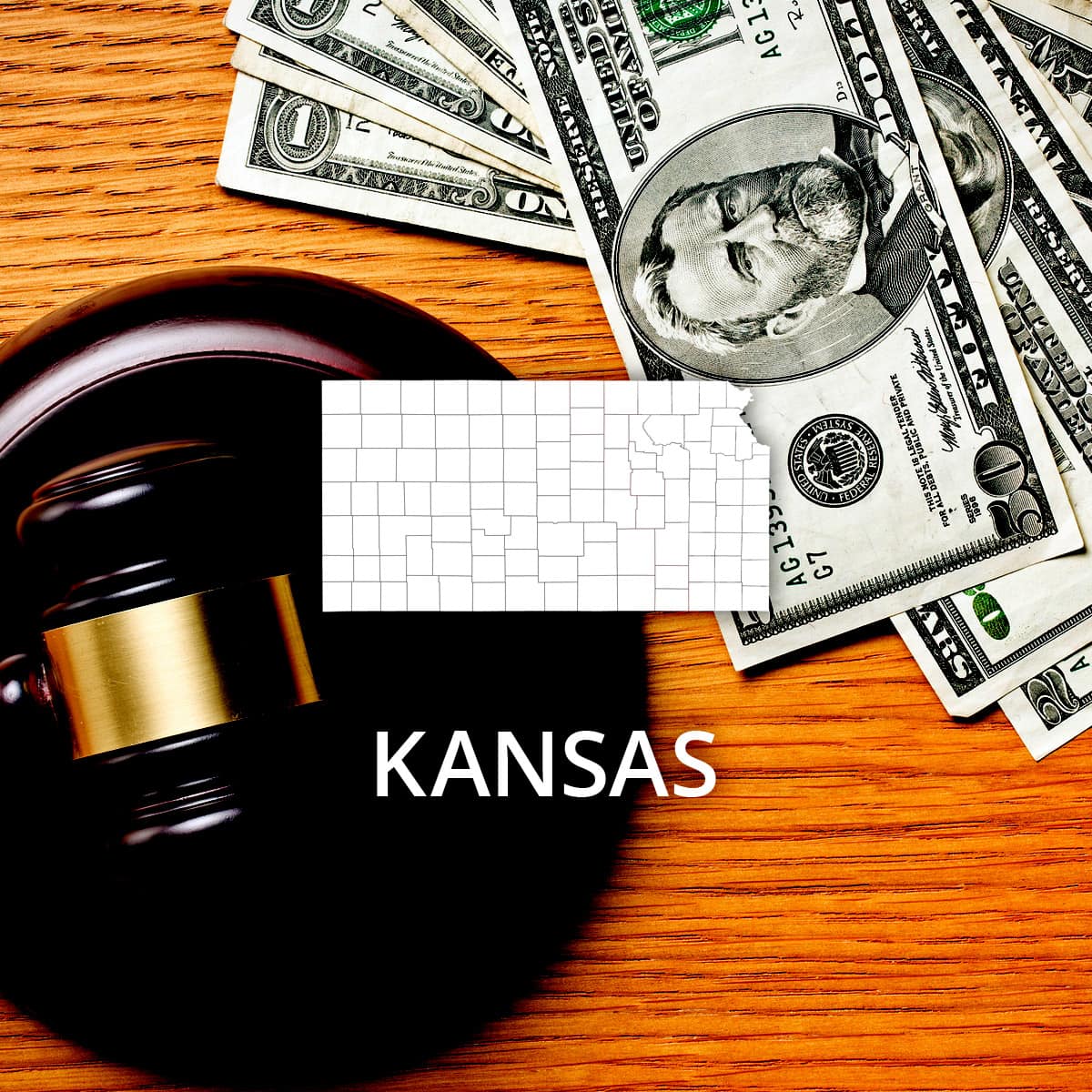 Multiple Bankruptcies: How Often You Can File One?
Multiple Bankruptcies: How Often You Can File One?
Table of Contents
 How to File Bankruptcy in Kansas
How to File Bankruptcy in Kansas
 According to the 2005 Bankruptcy Act, there are federal standards that must be adhered to by District Courts throughout the States. In Kansas, there are 3 District Courts in which a petitioner may file or have a bankruptcy hearing. The four main types of bankruptcies are Chapter 7, Chapter 11, Chapter 12, and Chapter 13.
According to the 2005 Bankruptcy Act, there are federal standards that must be adhered to by District Courts throughout the States. In Kansas, there are 3 District Courts in which a petitioner may file or have a bankruptcy hearing. The four main types of bankruptcies are Chapter 7, Chapter 11, Chapter 12, and Chapter 13.
 Kansas Bankruptcy Types: Chapter 7, Chapter 13, Chapter 11 & Chapter 12
Kansas Bankruptcy Types: Chapter 7, Chapter 13, Chapter 11 & Chapter 12
Chapter 7 Bankruptcy Kansas
Chapter 7 bankruptcy offers debt relief to those who owe more than they can pay. It is typically an option for debtors with a high unsecured debt ratio and a lower income. The non-exempt assets are liquidized to repay as much debt as possible and other debts such as credit card bills and medical financial obligations are forgiven. Non-dischargeable debt, like child support or back taxes, remains the responsibility of the petitioner.
Chapter 13 Bankruptcy Kansas
For those who are interested in keeping their home or vehicle, Chapter 13 may be a better option. This type of bankruptcy reorganizes the debt and allows for repayment over time, typically in a period of 3 to 5 years. Those who file for Chapter 13 are able to stop foreclosure on their homes and minimize unsecured debt.
Chapter 11 and Chapter 12 Bankruptcies
Businesses are eligible to file for Chapter 11; this is similar to Chapter 13 because it involves a repayment period and protects the assets of the business. It is an attractive option to businesses that are struggling but choose to remain in operation. A similar but specific Chapter 12 is designated to help family farmers or fishermen to keep working and pay off large debts in a set period of time.
Official bankruptcy forms for the U.S. Bankruptcy Courts are available at https://www.uscourts.gov/forms/bankruptcy-forms or RecordsFinder.com Court Forms Section.
 Steps to Filing Bankruptcy
Steps to Filing Bankruptcy
Credit counseling is required for any petitioner of bankruptcy within 6 months of filing. This allows the debtor to see all options and decide if bankruptcy is the best route for them. Once bankruptcy is selected, there are many more steps of the process.
- The first step is to determine for which type of bankruptcy a petitioner is eligible. A Means Test is used to compare the income of the individual over the last 6 months to the median income for Kansas. If the petitioner's income is lower, he or she may file for Chapter 7. Chapter 13 is an option for those with higher income.
- Next, documentation must be collected to petition the court for bankruptcy. This paperwork may include but is not limited to: property deeds, vehicle titles, monthly expenses, and an inventory of possessions, a list of debts, loan documentation, tax records, and records of recent major financial transactions. Those filing for Chapter 13 are also required to submit a repayment summary for the court to approve.
- All of these documents, along with the necessary forms are put together in what is referred to as "the schedule" and submitted to the court. Some petitioners chose to have legal counsel to file bankruptcy, while others file on their own. When the court receives the schedule, an automatic stay is issued which keeps creditors from contacting the debtor and halts any foreclosure proceedings.
- At this time the court appoints a trustee to liquidate all non-exempt assets to go toward repaying debts. Another responsibility of the trustee is to arrange a 341 meeting where the creditors and debtor meet to negotiate terms. If no agreement is made, a judge will set the terms.
Lastly, it is the responsibility of the petitioner to complete a financial management course to finalize their bankruptcy. If it is under Chapter 13, payments must be made according to the agreed-upon terms.
 Kansas Bankruptcy Court Locations
Kansas Bankruptcy Court Locations
There are 3 locations for filing for bankruptcy and bankruptcy hearings in Kansas. The first is at the Robert J. Dole Courthouse on 500 State Ave. Room 161, Kansas City, KS 66101. The Topeka location is housed in the Frank Carlson Federal Building 444 SE Quincy, Room 240, Topeka, KS 66683. Lastly, the Wichita U.S. Courthouse on 401 N. Market, Room 167, Wichita, KS 67202.




